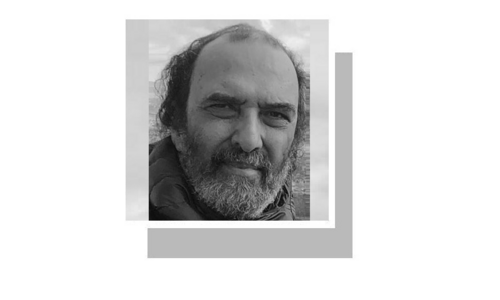DUBAI: Saudi Arabia identified on Thursday suspects in two of the three attacks that struck the kingdom on the same day this week, including one outside the sprawling mosque where the Prophet Muhammad (PBUH) is buried in the western city of Madina that killed four Saudi security troops.
In a statement released by the Interior Ministry late Thursday, authorities said the Madina bomber in Monday's apparently coordinated attacks was 26-year-old Saudi national Na'ir al-Nujiaidi al-Balawi.

Three suicide bombers behind a botched attack, also Monday, outside a Shia mosque in the eastern region of Qatif in which no civilians or police were wounded, were identified as Abdulrahman Saleh Mohammed, Ibrahim Saleh Mohammed and Abdelkarim al-Hesni, all in their early 20s.
It was not immediately clear what nationality or nationalities the three carried.
The ministry said investigations following the attacks led to the arrests of 19 suspects, seven Saudi and 12 Pakistani nationals. No other details were immediately available.

On Tuesday, Saudi Arabia identified the suicide bomber who struck outside the US Consulate in Jeddah as a Pakistani resident of the kingdom who had arrived 12 years ago to work as a driver. It named him as 34-year-old Abdullah Gulzar Khan. It said he lived in the port city with "his wife and her parents.: The statement did not elaborate.
In that attack, the bomber detonated his explosives after two security guards approached him, killing himself and lightly wounding the guards, the ministry said. No consular staff were hurt. No group has yet claimed responsibility for the attacks but their nature and their apparently coordinated timing suggested the militant Islamic State (IS) group could be to blame.
Pakistan has condemned Monday's attacks in the kingdom. There are around 9 million foreigners living in Saudi Arabia, which has a total population of 30 million. Among all foreigners living in the kingdom, Pakistanis represent one of the largest groups.
The Saudi ministry said the attacker in the Madina assault set off the bomb in a parking lot after security officers became suspicious about him. Several cars caught fire and thick plumes of black smoke were seen rising from the site of the explosion as thousands crowded the streets around the mosque.
Worshippers expressed shock that such a prominent holy site could be targeted. The Prophet Muhammad's mosque was packed on Monday evening, during the final days of the Muslim holy month of Ramazan, which ended on Tuesday. Local media say the attacker was intending to strike the mosque when it was crowded with thousands gathered for the sunset prayer.
Saudi Arabia is part of the US-led coalition fighting IS in Iraq and Syria, and the militant group views its ruling monarchy as an enemy.
The kingdom has been the target of multiple attacks by the group that have killed dozens of people. In June, the Interior Ministry reported 26 terror attacks in the last two years.













































